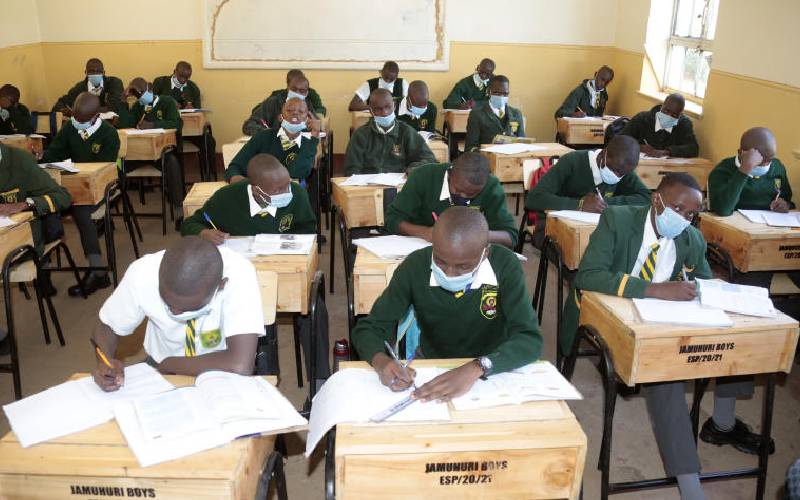×
The Standard e-Paper
Stay Informed, Even Offline

Form One Students at Jamhuri High School, Nairobi during the School reopening on Tuesday, January 5, 2021.[Boniface Okendo, Standard]
Recommendations of the Building Bridges Initiative Steering Committee that examinable set books in high schools should be locally written and capture local issues has triggered debate in the education sector.